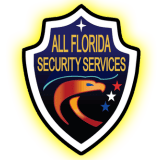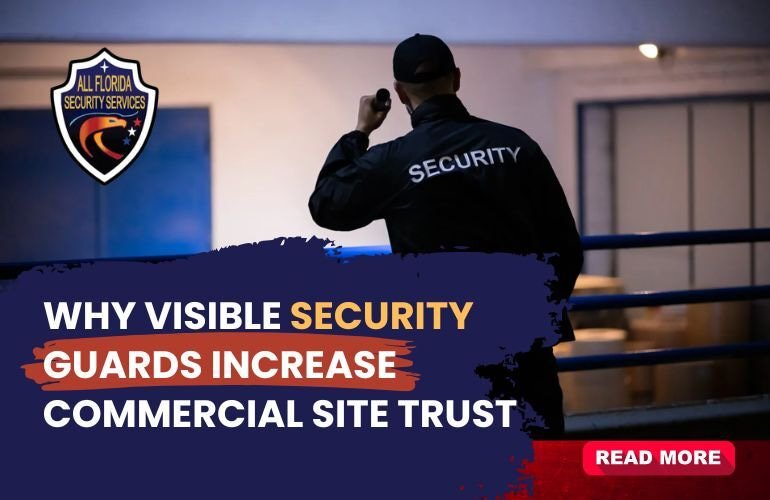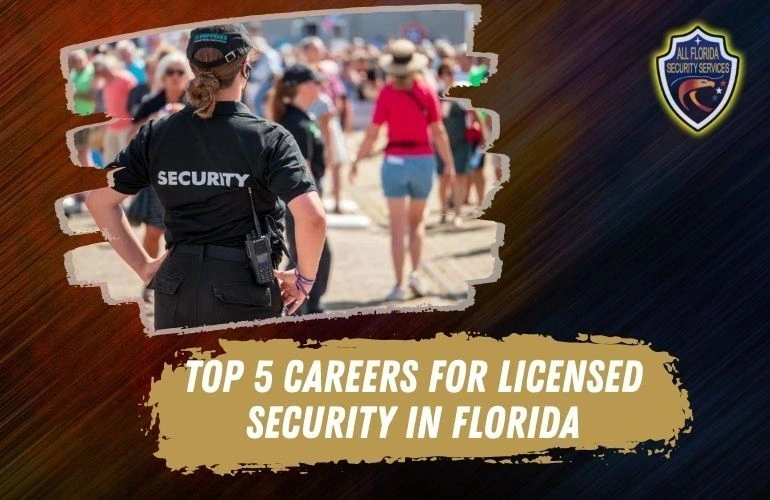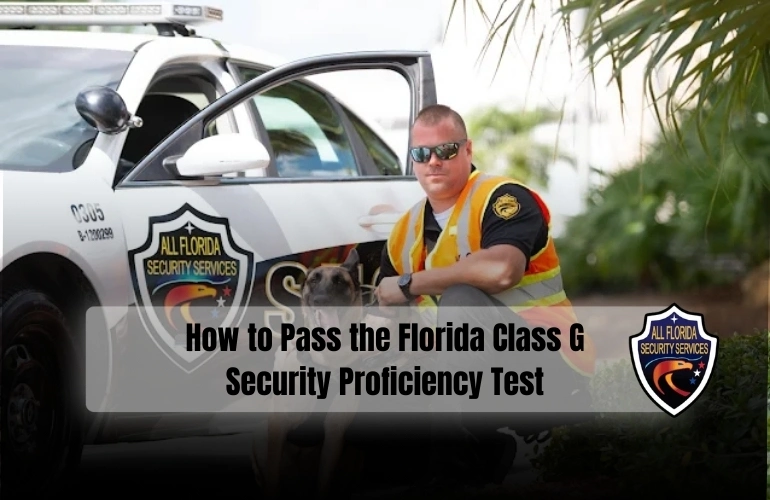Hosting an event, whether it’s a concert, sports game, festival, or private party takes a lot of planning. One of the most important parts of that plan is event security management. When done right, it keeps everyone safe, prevents chaos, and ensures your event runs smoothly from start to finish.
Event security isn’t just about hiring guards or checking tickets at the door. It’s a comprehensive system that encompasses event security planning, crowd control, access management, emergency preparedness, and coordination with local authorities. Whether your event is big or small, knowing how to secure it properly makes all the difference.
What Is Event Security Management?
Event security management refers to the planning and execution of actions to ensure the safety of people, property and assets in case of an event. It involves all aspects of venue security and control of access, as well as crowd management and emergency response.
Why Is Security Important in Event Management?
When organizing an event, most organizers consider entertainment, design and logistics, which is not the sure way to make an event a success, but rather the security of the event.
Here’s why security is essential:
- Prevents incidents: An effective event security plan reduces the opportunities of such incidents as theft, violence, or stampede.
- Protects guests and staff: It is in the interest of all the people who come to your event to feel safe.
- Safeguards property: Guard against property damage or theft. Security teams guard against both equipment and vehicle damage and theft.
- Maintains order: The security officers handle crowds, regulate access, and assist individuals in adhering to regulations.
- Builds trust: A safe event will boost your credibility as a trustworthy and accountable organizer.
Safe event security, be it a charity ball or a major concert, assists in establishing a good experience for all the stakeholders.
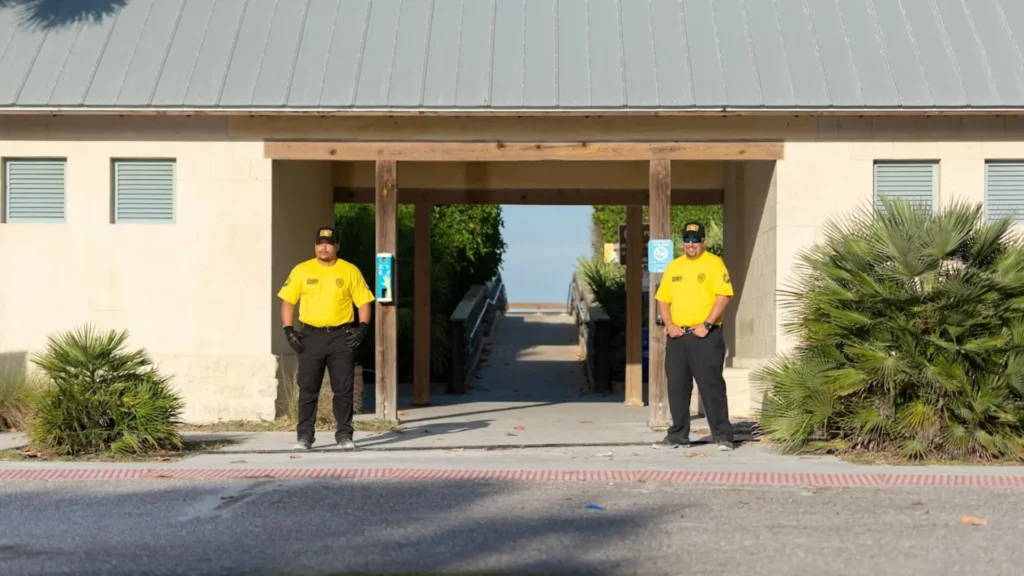
How to Secure Any Event Safely
Developing a safe event demands intelligent event security management, planning and collaboration. Let us take the entire process of ensuring an event is secured in the right manner.
Conduct a Risk Assessment
Begin by listing possible risks that may impact your event. These may include:
- Large crowds and overcrowding
- Unauthorized access
- Medical emergencies
- Equipment theft
- Weather conditions (for outdoor events)
By evaluating these factors, you will develop a specific event safety plan that will eliminate problems before they occur.
Create a Solid Event Security Plan
After identifying the risks, it is time to compile an elaborate event security plan. This plan should outline:
- Security zones: Divide the venue into sections (entrances, exits, VIP areas, stage zones).
- Staff roles: Designate duties such as crowd control, bag check and emergency response.
- Communication channels: Radios or apps provide real-time updates on the team.
- Emergency response: Encompass evacuation, fire and medical plans.
A detailed strategy will make your team respond swiftly and decisively to any crisis.
Hire Professional Security for Events
The presence of trained professionals on the ground is the difference. In the process of contracting security for a certain event, beware of licensed companies that have experience in dealing with security events.
Look for teams that provide:
- Event access control specialists
- Crowd management experts
- Emergency-trained security officers
- On-site supervisors for coordination
Whether you are seeking security services in concert, a corporate event or a personal gathering, professionals understand how to deal with the attendees to ensure that things go smoothly.
Secure the Venue and Access Points
The venue security begins at the gates. Restrict points of entry and exit.
- Install baggage checks or metal detectors at the entrance.
- Install ID checks on employees and suppliers.
- Maintain emergency exits in a clear and unblocked condition.
- Put guards on backstage or restricted areas.
Access control is done to make sure that individuals possessing the relevant credentials are in the event grounds.
Manage the Crowd Effectively
One of the most significant aspects of event safety management is crowd management. Large crowds may easily turn out to be unsafe when not managed.
Here’s how to manage crowds safely:
- Set up barriers or fences to guide movement.
- Clearly mark entry and exit routes.
- Have security officers stationed throughout the crowd.
- Use signage and announcements to keep attendees informed.
- Monitor for signs of stress, pushing, or overcrowding.
A calm, well-organized crowd ensures everyone enjoys the event safely.
Prepare for Emergencies
Despite all your efforts in planning, you cannot rule out the possibility of emergencies. Make your event safety and security team well-prepared to move fast.
- For immediate response, you need to have first aid kits and medical staff.
- You should consider drawing evacuation patterns
- Coordinate with relevant authorities
- Train the team to handle situations calmly and direct people soberly
This way, even if something unexpected happens, you will still have control over everything.
Use Technology for Better Security
Modern event security management often uses technology to enhance safety.
- CCTV cameras are essential in monitoring the entire event area and noticing anything suspicious in advance.
- Metal detectors are other types of devices that are used at the entrance to detect people with banned items.
- With the ever-advancing technology, drones are used to monitor events covering a large area.
- ID scanners are indispensable at the entrance to speed up the verification process.
While human beings are crucial in making decisions, technology can enable your plan in unimaginable ways.
Train Your Event Team
As discussed before, each person must understand the security measures needed at the event. Each of your event personnel, including ushers, volunteers, and coordinators, should undergo event security training about:
- Suspicious identification
- Emergency communication
- Direction giving and safety problems solving
- Security expectation
A well-trained team is vital in making your entire security run as planned.
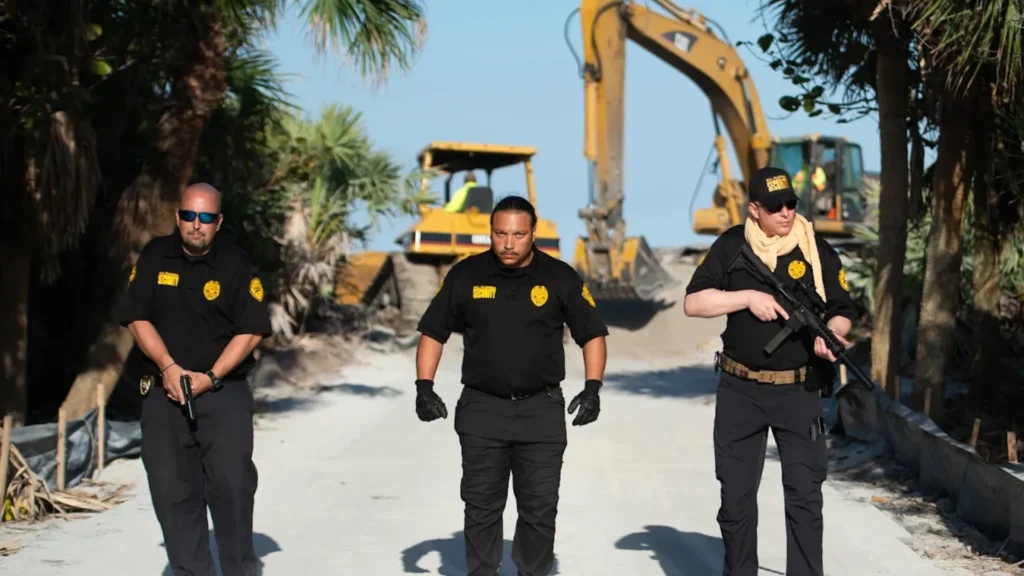
Review and Improve After the Event
Last but not least, after the event, perform a review over everything you expected, including your security strategies.
Perform reviews like:
- Was there any security threat or almost threats?
- Was the team communication effective?
- What can you improve in the subsequent events?
Therefore, make sure you are well prepared next time.
Conclusion
A successful event doesn’t just look good it runs safely and smoothly thanks to proper event security management. From planning and training to crowd control and emergency readiness, every detail matters.
When you prioritize safety, you protect your guests, your reputation, and your peace of mind. Whether it’s a small community gathering or a large public concert, remember: security isn’t an option it’s a necessity.
To learn more about professional security services for events, visit All Florida Security Services and make your next event a safe and successful one.
